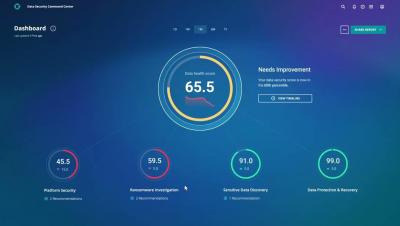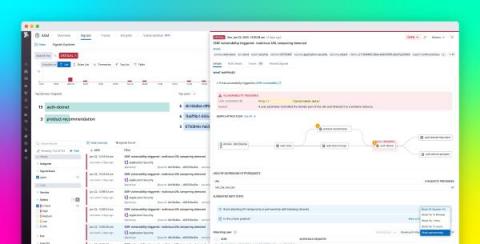Security | Threat Detection | Cyberattacks | DevSecOps | Compliance
Technology
7 Things You Need To Know About Mobile Threat Defense Services
A modern business needs to secure both physical networks and mobile devices. Here's what you need to know about mobile threat defense services.
5G and SASE: A Match Made in Heaven
I recently attended the LEAP tech event in Saudi Arabia, and it was clear walking the trade show floor that 5G is hitting critical mass. Lightning-fast network connections are now rolling into cities across Saudi Arabia and the wider world, and while it’s true that some countries are further into the rollout of 5G than others, all the network providers and consultancies last week were showcasing wide-ranging use cases of 5G.
Symmetric Encryption vs. Asymmetric Encryption? How it Works and Why it's Used
Cybersecurity is a top priority for businesses, governments, and individuals alike. With the rise of cybercrime in recent years, it’s more important than ever to ensure that sensitive data is kept safe and secure. That’s where encryption comes in. Encryption is the process of encoding data so that only authorized users can access it. There are two main types of encryption: symmetric and asymmetric encryption.
Block attackers in your apps and APIs with Datadog Application Security Management
Securing modern-day production systems is complex and requires a variety of measures—from secure coding practices and security testing to network protection and vulnerability scanning. Scaling these solutions to keep pace with the speed of development teams can be difficult, resulting in sprawling workflows and disparate sets of tooling.
Don't be the weakest link
Scam Scanner: AppWork is a legit platform
Rubrik Brings Security at the Point of Data to Microsoft Azure Stack HCI
Operating in a cloud model means not only being able to access your data anywhere but that your infrastructure is flexible and scalable enough to accommodate demands that change from day to day or sometimes from moment to moment. This is easy enough to achieve in a public cloud, where resources can be made elastic and added and removed dynamically.
Eliminate compromised passwords with One Identity Password Manager & Have I Been Pwned
It's a good question, and if you're curious about whether any of your email addresses or passwords were included in a data breach, you can easily find out at HaveIBeenPwned.com. This entirely free service, managed by Microsoft Regional Director & MVP Troy Hunt, lets you enter an email address or password to see how many breaches it has been included in.











